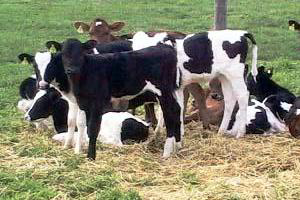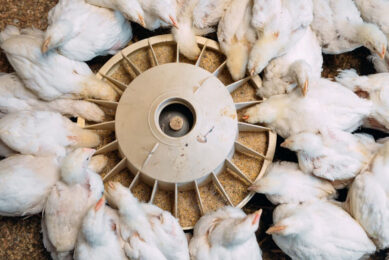Antibiotic resistance obstacle in Toyocerin re-evaluation

The FEEDAP panel of EFSA considered the probiotic Toyocerin safe for use and acknowledged some effects in several production animal species. However, antibiotic resistance appeared to be an obstacle.
Following a request from the European Commission, the Panel on Additives and Products or Substances used in Animal Feed (FEEDAP) was asked to deliver a scientific opinion on the safety and efficacy of the additive Toyocerin when in diets for sows, piglets, pigs for fattening, beef cattle, calves for rearing, broilers and rabbits.
Toyocerin is a preparation containing spores of a strain of Bacillus cereus.
FEEDAP writes: “Although some of the tolerance studies submitted by the applicant would be considered inadequate by present day standards, there are individual studies which provide sufficient assurance that the additive has no direct ill effects on the target species at the recommended dose range.”
Given that no adverse effects were recorded in any of the remaining studies, the FEEDAP Panel concludes that the additive is well tolerated by the target species that are the subject of this request for authorisation/re-evaluation.
Antibiotic resistance
However, the Panel notes that the strain of B. cereus harbours resistance determinants to two antibiotics, one of which at least can now be ascribed to an acquired resistance.
For this reason, FEEDAP considers “it inadvisable to introduce into target species a resistance determinant capable of transfer to other bacterial strains and adding to the pool of such determinants in the guts of livestock species.”
Analysis of the complete genome sequence showed that the strain of B. cereus in Toyocerin harbours all of the genes coding for the non-haemolytic and haemolytic enterotoxins.
Since the two operons present the same organisation as pathogenic B. cereus strains and since no mutation affecting transcription or translation has been detected, it has to be assumed that the Toyocerin strain has the capacity to elaborate functional toxins and, thus, to pose a hazard for those exposed to the organism.
This would include those handling the additive and consumers inadvertently exposed to contaminated animal products.
Efficacy
The addition of Toyocerin to the feed has the potential to improve at least one aspect of production in:
- chickens for fattening at a minimum dose of 0.2 x 109 CFU/kg feed;
- pigs for fattening at a dose of 0.5 x 109 CFU/kg feed for the first (grower) period followed by at a minimum dose of 0.2 x 109 CFU/kg feed for the second (finisher) period;
- sows at a minimum dose of 0.5 x 109 CFU/kg feed for the complete cycle:
- calves for rearing at a minimum dose of 0.5 x 109 CFU/kg feed;
- cattle for fattening at a minimum dose of 0.2 x 109 CFU/kg feed and
- rabbits for fattening at a minimum dose of 1.0 x 109 CFU/kg feed.
In the view of the Panel, insufficient data was available to conclude on the efficacy of Toyocerin when used in diets for weaned piglets.
 Beheer
Beheer









 WP Admin
WP Admin  Bewerk bericht
Bewerk bericht